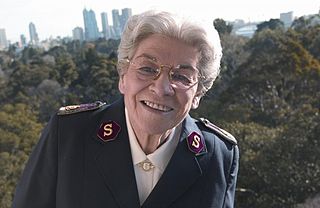A Quote by Alice Walker
To acknowledge our ancestors means we are aware that we did not make ourselves, that the line stretches all the way back, perhaps to God; or to Gods. We remember them because it is an easy thing to forget: that we are not the first to suffer, rebel, fight, love and die. The grace with which we embrace life, in spite of the pain, the sorrow, is always a measure of what has gone before.
Related Quotes
There's that wonderful line in Measure for Measure. I forget which of the characters has committed adultery and is going to die. He looks at his hand and says, "How could this die?" That's the joke. I've always thought, and this is nothing new, that we don't really believe we die. I think you're going to die, because I know that's what happens but I can't imagine I'm going to die.
I don't want to die in pain or in an undignified way, I don't want any of the people I love to die in, die painfully. But I'm aware of the fact that they may die before I do and I have to part with them and take the loss. The hardest thing of love is to let go. But I think I can get let go of almost anybody.
I believe that God will help us to forget things, the memory of which would do us harm, or rather that He will enable us to remember only so much of them as will be for our good, and we, ourselves, not emotionally overwhelmed. The pain endured. The lesson learned. Let it now be forgotten! Face the future with courage, cheerfulness, and hope. Give God the chance and He will make you forget all that it would be harmful to remember.
It is grace at the beginning, and grace at the end. So that when you and I come to lie upon our death beds, the one thing that should comfort and help and strengthen us there is the thing that helped us in the beginning. Not what we have been, not what we have done, but the Grace of God in Jesus Christ our Lord. The Christian life starts with grace, it must continue with grace, it ends with grace. Grace wondrous grace. By the grace of God I am what I am. Yet not I, but the Grace of God which was with me.
I recently got back from Hiroshima and it was fascinating to me how the Japanese accommodate this paradox. We were talking about this word aware, which on the page looks like "aware," which speaks to both the pain and the beauty of our lives. Being there, what I perceived was that this is a sorrow that is not a grief that one forgets or recovers from, but it is a burning, searing illumination of love for the delicacy and strength of our relations.
Theologians talk about a prevenient grace that precedes grace itself and allows us to accept it. I think there must also be a prevenient courage that allows us to be brave - that is, to acknowledge that there is more beauty than our eyes can bear, that precious things have been put into our hands and to do nothing to honor them is to do great harm. And therefore, this courage allows us, as the old men said, to make ourselves useful. It allows us to be generous, which is another way of saying exactly the same thing.
I'm not going to get involved in a debate with you. Just remember this: the gods give, and the gods take away. Even if you are not aware of having been granted what you posses, the gods remember what they gave you. They don't forget a thing. You should use the abilities you have been granted with the utmost care.
About 2500 years ago Aeschylus, the Greek playwright, wrote, He who learns must suffer. And even in our sleep, pain that cannot forget falls drop by drop upon the heart and in our own despair, against our will, comes wisdom to us by the awful grace of God. These remarkable photos and the stories that accompany them should be on billboards from sea to shining sea, so the pain and suffering they represent might fall drop by drop upon the American psyche and against our will, by the awful grace of God, wisdom might come to these United States and her foreign policy.
There are two basic motivating forces: fear and love. When we are afraid, we pull back from life. When we are in love, we open to all that life has to offer with passion, excitement, and acceptance. We need to learn to love ourselves first, in all our glory and our imperfections. If we cannot love ourselves, we cannot fully open to our ability to love others or our potential to create. Evolution and all hopes for a better world rest in the fearlessness and open-hearted vision of people who embrace life.
Alone thou goest forth, O Lord, in sacrifice to die; is this thy sorrow naught to us who pass unheeding by? Our sins, not thine, thou bearest, Lord; make us thy sorrow feel, till through our pity and our shame love answers love's appeal. This is earth's darkest hour, but thou dost light and life restore; then let all praise be given thee who livest evermore. Grant us with thee to suffer pain that, as we share this hour, thy cross may bring us to thy joy and resurrection power.
There's unconditional love there. You hear that phrase a lot but it's real with me and her [June Carter]. She loves me in spite of everything, in spite of myself. She has saved my life more than once. She's always been there with her love, and it has certainly made me forget the pain for a long time, many times. When it gets dark and everybody's gone home and the lights are turned off, it's just me and her.
But how can we love someone if we don't like him? Easy-we do it to ourselves all the time. We don't always have tender, comfortable feelings about ourselves; sometimes we feel foolish, stupid, asinine, or wicked. But we always love ourselves: we always seek our own good. Indeed, we feel dislike toward ourselves, we berate ourselves, precisely because we love ourselves; because we care about our good, we are impatient with our bad.







































